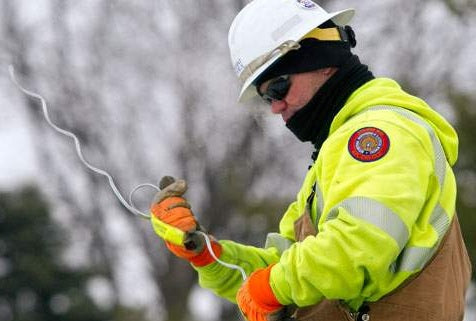
Folks experienced in working under harsh conditions are usually great at keeping themselves warm. Nevertheless, it is a good idea to review some cold weather protection basics with your workers before the temperature hits extremes. Now is a good time to hold a safety meeting and explain the importance of hypothermia prevention. In general, the objective should be learning or refreshing the knowledge of best practices on how to conserve body heat and avoid bare skin exposure when working in cold weather conditions.
Here are top 7 tips on how to prevent frostbite:
1. Wear insulated jackets, heavy coats, and coveralls which provide superior protection combined with a good range of motion. 2. Use your helmets and hardhats with insulating liners and a mouthpiece to effectively protect head and neck. 3. Wear gloves with a double-layer lining or insulated mittens for better dexterity and comfort. Seamless string knit gloves have excellent thermal insulation properties and a snug, comfortable fit that does not chafe or irritate skin.
4. Sometimes, in warmer climates, it is sufficient to wear a beanie and a scarf to cover your head, neck, and chest from the cold and the wind. Fleece liners with drawstring perform both functions and are ideal for use in cold weather work conditions in such industries as construction, woodwork, refineries, oil drilling, maintenance, and mining.
5. If you are continuously walking on extremely cold surfaces, wearing double-layer thermal socks and insulated boots with steel or composite toes is a good idea.
6. Create an instant barrier between the frozen ground and the feet by standing on a mat. Go inside the building during your break and have a hot beverage to warm up.
7. According to OSHA, “protecting workers' eyes from wintry conditions is an important yet easily overlooked part of an overall eye safety program. Without the proper cold weather eyewear, workers are vulnerable to an array of hazards, and the chances for injury increase significantly.” Goggles with a Thermo Lens System are perfect for protecting those at risk of eye damage.
Following these basic safety practices will help you make sure you don't fall prey to the chill.
If you need the expert advice about the best means of cold weather protection, please don’t hesitate to give us a call at 800-829-9580, or visit us online at pksafety.com, and follow us on Twitter @PKSafetydotcom.

